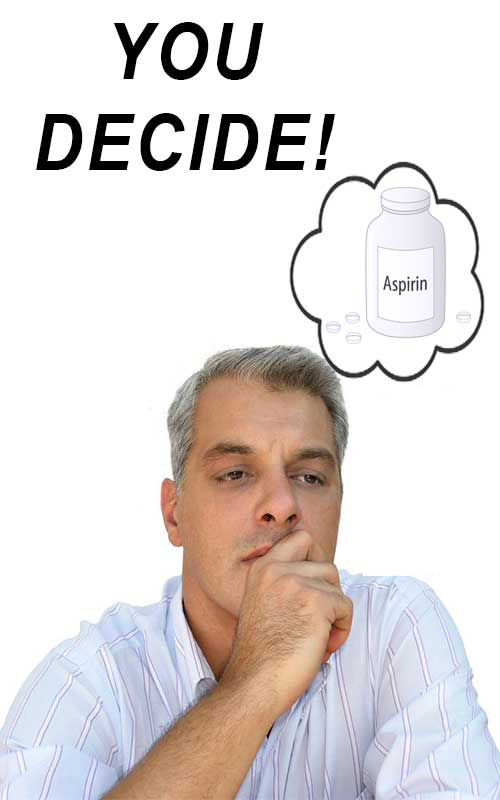HEART ATTACK WARNING SIGNS
Chest Discomfort
Most heart attacks cause pain or marked discomfort in the centre of the chest which lasts more than a few minutes, or goes away and comes back. It can feel like uncomfortable pressure, squeezing, fullness or pain.
Symptoms can also include pain or discomfort in one or both arms, in the back, the neck, the jaw and the stomach.
Shortness of breath
Other signs
There may include breaking out in a cold sweat, nausea or light-headedness
If any of these are "Yes,"
we advise you - take an aspirin tablet and call an ambulance
If you are allergic to aspirin
then clearly you should not take a tablet
WARNING SIGNS OF A STROKE
The FAST test is a quick way to check symptoms suggestive of a stroke..
Face: Smile! (Does one side of their face droop?)
Arms: Raise both arms. (Is one higher than the other? Do they have a hard time holding one up?)
Speech: Repeat a short, simple sentence, like "Mary had a little lamb." (Do they slur their words? Is it hard to understand?)
Time: If any of these are "yes,"
we advise you - take an aspirin tablet and call an ambulance.
If you are allergic to aspirin
then clearly you should not take a tablet
The symptoms listed above are only a guide. They are a good guide however and have been well tested in practice. A few other conditions can however mimic a stroke, or a heart attach, but only rarely. In almost all these other conditions, a tablet of aspirin is most unlikely to do any harm… but of course, it is your choice!
If you know you have a stomach or a duodenal ulcer, or if you suffer at present from indigestion, then aspirin may increase the stomach trouble, and the drug is therefore best avoided…again, it is your choice!
The best dose of aspirin for ‘immediate’ use, as indicated above, is not known with certainty. However, a normal aspirin tablet with around 300 mg of the drug is best, rather than just a single ‘junior’ aspirin which has only 75 or 81 mg.
